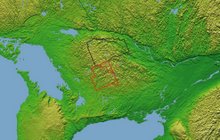Milwaukee Journal Sentinel
Measure would ban phosphorus from lawns
By Lee Bergquist of the Journal Sentinel
Fertilizer that contains phosphorus could be banned from Wisconsin lawns, golf courses and other grassy areas by next year.Phosphorus stimulates plant growth and has long been a component in most traditional fertilizers. It is the middle of three numbers used to describe ingredients on fertilizer packages.
Key Democratic lawmakers will hold a news conference detailing the legislation.Lawmakers have tried to advance a phosphorus ban in the past, but the prospects for passage improves this year because Democrats now control both the Senate and the Assembly.
Rep. Spencer Black (D-Madison) and Sen. Mark Miller (D-Monona) are the leading co-sponsors of the legislation. Black said Friday the legislation is part of an "ambitious environmental agenda" in the new session aimed at attacking an array of water-quality problems.
In the case of a phosphorus ban, advocates hope that limiting its use will reduce algae blooms on lakes and other waterways.If approved, the bill circulating among lawmakers would go into effect one year after passage.Farm use would not be affected.
Dane County and 31 villages and towns, including a dozen in southeastern Wisconsin, already restrict the use of phosphorus-based fertilizers by property owners, according to the Wisconsin Association of Lakes.They include the town, village and city of Oconomowoc, Village of Chenequa, Village of Nashotah and town and city of Delavan.
"(Phosphorus) is essentially plant food," said Tami Jackson, a spokeswoman for the association, spurring algae blooms, crowding out useful plants and eating up oxygen that causes fish kills.Dane County banned phosphorus in fertilizer in January 2005.Sue Jones, watershed management coordinator for Dane County, said it was premature to judge whether the ban is improving water quality.
And that's the problem, said Karl Schimmel, president of Lawns of Wisconsin Network, a trade group.He described phosphorus bans as "feel-good legislation."
The group agrees phosphorus can harm lakes and streams but believes fertilizer gets a bad rap when other sources of phosphorus, such as manure runoff and goose and duck feces, also contribute to the problem.Lawn-care companies have been offering fertilizer without phosphorus in recent years as the demand for the product and local restrictions have grown, Schimmel said.
Wisconsin Manufacturers & Commerce, the largest business lobby, hopes a compromise can be struck. Scott Manley, director of environmental policy, said a statewide ban is preferable to patchwork regulation. But he said language in the bill puts the onus on retailers and should be placed on fertilizer users.
There are limitations in the legislation. Phosphorus-based fertilizer could be used on new lawns and grass where soil is deficient. Milorganite brand fertilizer also gets a reprieve, according to the bill. Milorganite contains 2% phosphorus.
Jeff Spence, director of marketing for Milorganite at the Milwaukee Metropolitan Sewerage District, said that phosphorus from organic sources tends to leach slower into water than synthetic fertilizer.
http://www.jsonline.com/news/wisconsin/37341199.html
